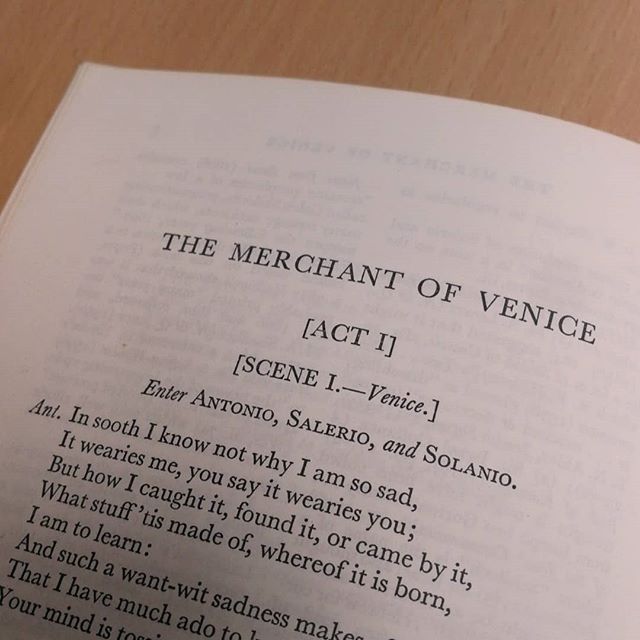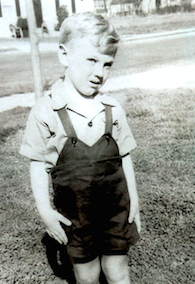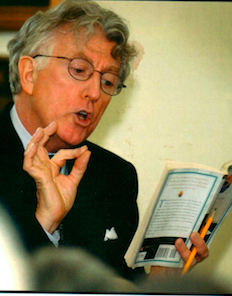So we’ll live, and pray, and sing, and tell old tales, and laugh at gilded butterflies. -King Lear, 5.3
By Suzanne Dooley
For most of us, reading Shakespeare can be intimidating. We’ve been told that he’s “too hard to understand”; his work “too high-brow.” But the truth is, Shakespeare mostly wrote his plays for the working class to enjoy – not just the intellectuals. Shakespeare knew exactly what beguiled his audience and pulled off one box-office hit after another during his lifetime. And not only is his work still pertinent and accessible to a wide variety of people today, it is loaded with sex jokes and puns that keep the plays amusing. Most classes that teach Shakespeare tend to ignore these facts, disregarding the many moving parts that comprise a Shakespearean play.
If it’s been awhile since you’ve read Shakespeare – or if you’ve never read him at all, but aspire to – you’ll want to take a class that best understands and appreciates the intentions Shakespeare had when developing his work: the bard’s sense of humor; his empathy for others that is deep, sometimes dark, but always truthful; and his own personal struggles, loss and grief. Fortunately, there is such a class in existence, that actually takes apart one Shakespeare play at a time (line by line) over a six-week bout. And that class is taught by renowned Shakespearean director, award-winning author and sold-out, revered raconteur: the incomparable, charismatic Mr. Bob Smith. The same Smith that famous Hollywood actors and actresses have hired as their private acting coach.
So, besides his stellar resume, what makes Smith so appealing, and sought after by many? For the answer, let’s venture back to that one eternal summer [that did] not fade when Smith, as a boy, became master of his fate.

A comedy by Shakespeare.
To Thine Own Self Be True
Smith’s childhood was a lonely one: his younger sister, Carolyn, to whom he was devoted suffered a severe handicap; his mother endured a number of nervous breakdowns; his family moved a lot. And so, as a young boy, Smith lived in a melancholy world. His first Shakespeare experience was at the age of ten at his local library in Stratford, Connecticut. With the librarian providing to him a copy of The Merchant of Venice, Smith read its first line: In sooth I know not why I am so sad. “[This line] struck me . . . it seemed right to me,” said Smith, “though I did not know what the words ‘in sooth’ meant.” And that one line resonated so much with the young Smith, that he was further inspired to memorize lines from other Shakespeare plays, reciting them as he whizzed down a familiar hillside on his bike, feet akimbo and belting out the words of Shakespeare into the gentle breeze. At this time, Smith wore Shakespeare close to his vest. And close to his heart.

Smith as a young boy.
“Shakespeare seemed to give me a thing to lean against that was bigger than myself,” said Smith. “And even if it was remote at that time, that remoteness was part of what was attractive about it. It seemed faraway from anything ugly, [with] something beautiful at the base of it.” When Smith was in his mid-teens, he got his first job (dressing the actors) in Stratford’s summer Shakespeare festival. He reveled in the experience and absorbed the theatrical experience like no other. And it was there in Stratford’s local theatre, Smith first began to share his innermost Shakespeare with the public. “That was probably the first time in my life I did not feel completely alone because here were all these people . . . , and not just me, trying to figure it all out,” said Smith. “There was this great sense of everyone trying to make a thing the best it could be, and I think because my sister could never get any better, here was a thing that could always get better.” By his late teens, Smith had memorized most of Shakespeare’s plays, and it’s that Shakespeare that he now passes on to others – that intimate, relatable Shakespeare.

Smith and his younger sister, Carolyn.
Smith fondly remembers that “you could change a [stage] light, you could change an entrance, and something was different; you could hit a final consonant, and a line suddenly make more sense. There was always a way to make it clearer.” Smith recognizes that in the work that he does now (in his classes) it’s about that – “it’s about trying to find out what a thing means, and what it means to you and how does it make you feel.”
Much Ado About Smith
There’s always some static electricity in the air -sparks of exhilaration- minutes before Smith’s class is about to begin. “It’s something more than a class; much, much more,” describes one enrollee. “I think they have to invent another name for it.” Over the six-week stretch, Smith’s class is (as Smith likes to say) “nothing showy or pretentious.” Instead, there exists a sacred learning space and a collective enthusiasm, authenticity and eagerness amongst all those in attendance to think deeply, share their opinions and reflect upon that one specific Shakespeare play and its meaning.
Smith always provides a xerox copy of the Shakespeare play that is to be discussed. Enrollees can keep these copies and mark them up as Smith reads aloud the play – line by line; providing anecdotes, historical references and asking clarifying questions when appropriate. Enrollees consist of a variety of people: doctors, lawyers, writers, actors, retirees, persons with advanced degrees, persons with no degrees, Shakespeare neophytes and aficionados, young and old alike – delving into discussions that extend way beyond Shakespeare’s use of lyrical prose and poignant metaphors to universal issues of love, trust, time, betrayal, grief and philosophy. “Shakespeare in many ways is about words” said Smith. “And to be able to take a play apart one line at a time, and ask whatever needs asking, is a luxurious thing.”

Bob Smith
The Good We Oft Might Win
Smith is a prime example of what you can achieve if you follow your passion. He paved a pathway of success for himself by discovering what he most loved, and followed wherever it led him. Currently, it’s led him to teaching these classes for Shakespeare enthusiasts. Fortunate for us who attend.
The enrollees in Smith’s classes, including myself, connect with Shakespeare — the profundity of his plays, his mastery of metaphor, and his profound insight into complex emotions. We read Shakespeare to understand ourselves, the people we know and the world we live in. And we recently read Othello in Smith’s class. The play’s relevance remains timeless: back-stabbing, inauthenticity, jealousy and naivety. It’s about one man’s destruction of his most trusting friend; a one-sided bromance gone bad – terribly bad. There’s also romantic love, humor (which includes a fart joke), sex, marriage and revenge that ends in the ultimate betrayal. Could be a Netflix series, no? The contemporary parallels in Shakespeare’s plays are striking, for sure. In fact, every time we read and re-read a play, it’s revealed just how relevant the bard still is – through his depictions of the absurdity of the status-conscious, as well as in his portrayal of a divided country of the haves and have-nots. Sounds familiar, eh?
By now, repeat enrollees in Smith’s class can easily imagine Shakespeare whispering into Smith’s ear: The wheel is come full circle. They can effortlessly conjure up in their minds, Smith seated comfortably inside a yellow taxicab -now as a seasoned adult- riding over Manhattan’s flattened hills to go to the artist’s community center in order to teach his class. They witness Smith standing at a podium under the spotlight in a semi-lit theatre, warmly socializing with a handful of long-time enrollees. They watch Smith ruminate upon that bank where the wild thyme grows, anticipating with childlike playfulness those surprising epiphanies that will likely occur in his class. Smith and Shakespeare have done the exceptional many times in the past. Why not again – albeit, this time with you in class?

Smith reading Shakespeare.
Fast Fun Facts About Bob Smith:
Don’t Leave Home Without: A positive attitude and the thrill of where I’m going; my Metro-North ticket; glasses; a couple of banged-up Shakespeare paperbacks (the day’s lectures); a legal pad with recent work on a book I’m writing; a handful of pilot ballpoint pens; some No. 2 pencils; sunglasses; A&D ointment; an old chipped 5mg Xanax that’s been in my backpack for years.
Best Positive Professional Experience: I cull one from thousands. What jumps out is . . . midway through directing the trial scene in The Merchant of Venice, I threw on a tux, hopped into a cab and crossed town to walk a parentless actress down the aisle at St. Peter’s Church. She was marrying a guy I’d fortuitously caused her to meet. After the vows I rushed back to the play’s rehearsal to continue chipping away at one of the most heart-wrenching scenes in all Western drama. This is exactly how I live.
Role Models: Peter Brook; Greta Thunberg
Best Career Advice You Were Ever Given: Failures a fact of life, it’s what we do with it that makes all the difference. “To thine own self be true.”
Best Personal Triumph: (1) Suddenly got neurotic about flying; I’d learned long ago that phobias must be walked through to fix. So, I accepted an offer to teach Shakespeare to film actors in L.A. This forced me to fly twice a month between New York City and Los Angeles. And it was two years ago that I traded frequent flyer miles for a less scary first-class seat. Still, I had 647,000 frequent flyer miles remaining. I rewarded myself with the Concorde four times. (2) Scribner asked me to write a book. I’d never written anything, not even class papers. I didn’t attend college. Honored by the offer, I worked on it every day for six years. I’d write a couple of pages, then record them on my tape recorder, put the headphones on and listen over and over, searching for a better way to say whatever it was. Sometimes I listened a hundred times, then I would re-write and re-write. I still long, each time I’m asked to read text, to re-write everything. My book won some great praise and I was every proud. Not so much of the writing, but the stick-to-it-ness. One of the most proud experiences was when Neil Simon provided a glowing review of Hamlet’s Dresser and the book became Wall Street Journal’s Editor’s Pick and book of the month selection. 
Most Memorable Time: The penthouse suite garden in the ancient Hotel La Fenice in Venice (in a snowfall with a lover); takeoff at Heathrow in Seat 1A of the Concorde (with a momentary view of Windsor Castle); the light in my deeply disabled sister’s eyes when she sees me; dancing with Cher at the LA opening of Dirty Dancing.
Your Go-To Shakespeare Play To Feel Inspired: I used to know all the Shakespeare plays by heart and the fun of it was that on the subway or standing in a tedious line, I could cast everyone around me in a production in my head. I loved doing my version of a play with everyone unknowingly acting the world’s greatest theatre parts.
Your Favorite Shakespeare Character and Why: Coriolanus, Shylock, Lady Macbeth – they passionately risk human affection to maintain what they believe in.
Your Favorite Shakespeare Play and Why: Sophie’s Choice. I love each for their particularities. Not so sure about the Merry Wives of Windsor.
If Shakespeare were alive, what would you ask him?: Where are your manuscripts?

For purchase of Smith’s critically acclaimed memoir, entitled Hamlet’s Dresser, that has been translated into numerous languages, click here: https://www.simonandschuster.com/books/Hamlets-Dresser/Bob-Smith/9780684852706
To inquire about Smith’s classes in 2020 or to register for Smith’s upcoming 6-week class, As You Like It, which has limited seating, e-mail Bob Smith at lovestotravel777@yahoo.com. Date/time, location and cost for As You Like It are as follows:
Time: Noon – 1:30pm
Location: El Barrio’s Artspace PS 109, 215 East 99th Street, NY, NY; Lower Level
Editorial Note: The quotes and factual information included in this article were extracted from a BBC audio interview conducted with Mr. Bob Smith.



1 comment
Hey Bob, So happy to see an article about your current Shakespeare lectures. I have been a fan since the days at the Stratford library in the lovely paneled room with stained glass windows where we would pass the wicker basket after a spirited discussion of whether or not Gertrude was a “slut.” Would love to attend another lecture after the virus restrictions are relaxed.
All the best to you. You have “lived a charmed life.”
Peggy Hammond, Branford, CT